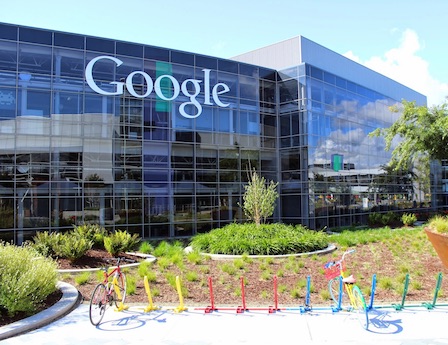European Union Has Antitrust Issues With Google

The smarter way to stay on top of broadcasting and cable industry. Sign up below
You are now subscribed
Your newsletter sign-up was successful
The European Commission has told Google that it believes the company has abused its dominant position in search by putting restrictions on Android device manufacturers and mobile broadband ISPs in violation of EU antitrust rules.
In its preliminary finding, the commission took issue with the fact that Google Search was pre-installed and the default setting on most Android devices set in Europe and that it appeared to be closing ways for rival search engines to access the market with competing browsers and operating systems. In addition, it said, Google appeared to be "stifling competition and restricting innovation in the wider mobile space."
That came in a statement of objections sent to Google and parent company, Alphabet. The preliminary finding is just that and signals a reason for continuing investigation, not a conclusion. (It also came a day after Canada's Competition Bureau closed an investigation into allegations of Google anticompetitive business practices in search and advertising services in Canada.)
"A competitive mobile internet sector is increasingly important for consumers and businesses in Europe," said commissioner Margrethe Vestager, who is in charge of competition policy. "Based on our investigation thus far, we believe that Google's behavior denies consumers a wider choice of mobile apps and services and stands in the way of innovation by other players, in breach of EU antitrust rules. These rules apply to all companies active in Europe. Google now has the opportunity to reply to the Commission's concerns."
The commission began investigating Google in April 2015 given its dominance in search, smart phone/tablet operating systems and Android app stores, with market shares of more than 90% in each European Economic Area (EEA).
The EU alleges that Google has breached antitrust rules by:
"Requiring manufacturers to pre-install Google Search and Google's Chrome browser and requiring them to set Google Search as default search service on their devices, as a condition to license certain Google proprietary apps;
The smarter way to stay on top of broadcasting and cable industry. Sign up below
"Preventing manufacturers from selling smart mobile devices running on competing operating systems based on the Android open source code;
"Giving financial incentives to manufacturers and mobile network operators on condition that they exclusively pre-install Google Search on their devices."
The EU is separately investigating Google for more generally favoring its own search results, copying rival website content (scraping), and ad exclusivity and restrictions.
The commission is presenting its charges in writing, after which Google can look at the investigation findings, reply in writing, request an oral hearing and make their case.
The Computer & Communications Industry Association—whose members include Google, Microsoft and Yahoo!—sent up a warning flare. “The Commission needs to be careful as challenging the contractual provisions that allow open source operating systems to compete against proprietary software can backfire. If not careful, the Commission could harm competition, not foster it.
“While we can appreciate the European Commission’s desire to be vigilant about investigating competition issues, the market for apps and services is extremely competitive," CCIA said. "At first blush, it is difficult to see the contracts identified by the Commission as being competition problems. In fact, they have clear procompetitive motivations. The agreements identified by the Commission do not prevent hardware manufacturers and mobile operators from preinstalling whatever non-Google apps they so choose. As a result, consumers have more choice, not less. Furthermore, the charges are curious given the ease at which consumers can easily download competing apps and customize their phones. In fact, nearly 80% of consumers do customize their smartphone’s home screen, and the average Android user downloads nearly 100 apps.”
In the U.S., there has been some talk on Capitol Hill of the Federal Trade Commission taking a fresh look at allegations that Google favors search.
Contributing editor John Eggerton has been an editor and/or writer on media regulation, legislation and policy for over four decades, including covering the FCC, FTC, Congress, the major media trade associations, and the federal courts. In addition to Multichannel News and Broadcasting + Cable, his work has appeared in Radio World, TV Technology, TV Fax, This Week in Consumer Electronics, Variety and the Encyclopedia Britannica.

